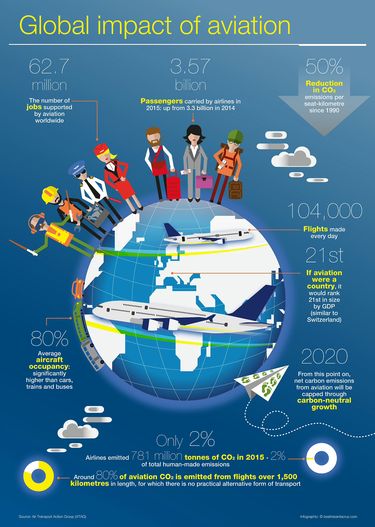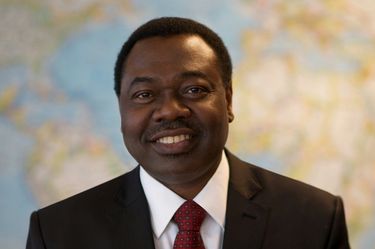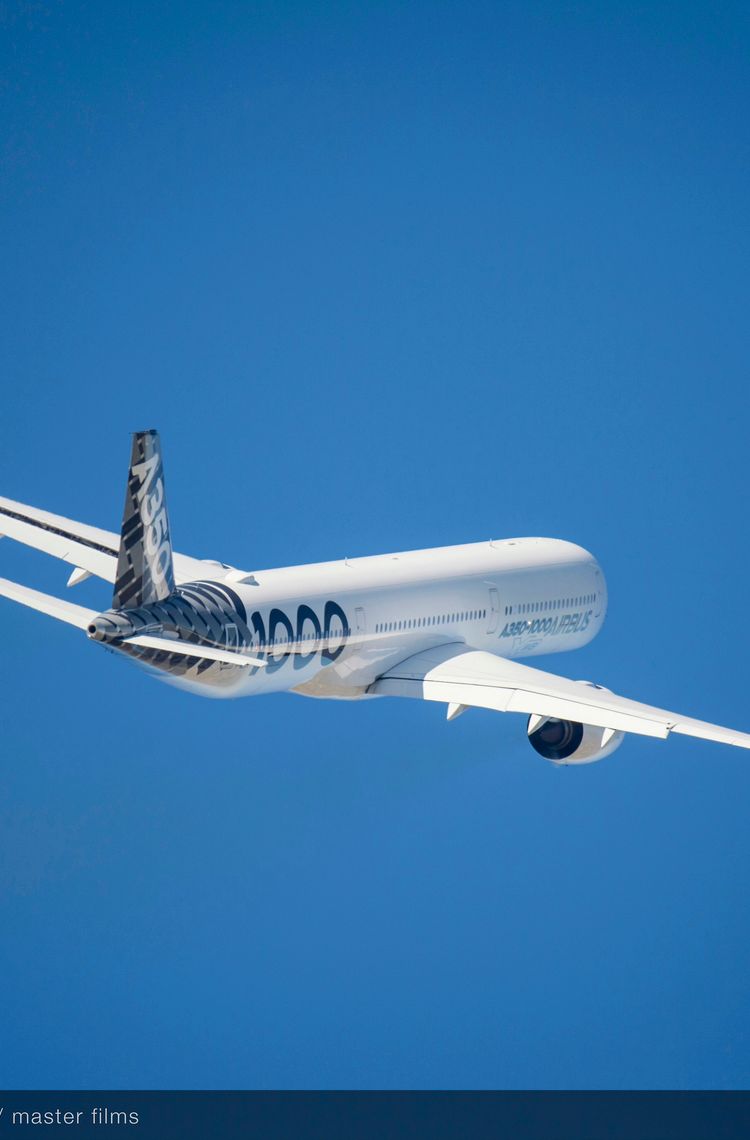Aviation: an indispensible industry
International Civil Aviation Day helps highlight awareness of the importance of civil aviation in global social and economic development. In an interview, President of the International Civil Aviation Organisation Dr Olumuyiwa Benard Aliu reflects on the sector’s impressive progress against climate change and increasing efforts to improve cybersecurity.
As a major pillar of the global economy, air transport has never been more important. To ensure that all its 191 member states have access to the socio-economic benefits of safe, reliable air transport, the International Civil Aviation Authority (ICAO) has established the special anniversary theme of ‘No Country Left Behind’ for the annual International Civil Aviation Day on 7 December, 2016.
The UN specialised agency works to develop international standards and recommended practices in support of a safe, efficient, secure, economically sustainable and environmentally responsible civil aviation sector.
In October 2016, ICAO and governments reached a historic carbon offsetting and reduction agreement for international aviation. It represents a major milestone in the aviation industry’s commitment to reducing CO2 emissions, which Airbus will continue to support through its own sustainable work as well as its partnerships with other organisations.

A safe, economically sustainable and environmentally responsible civil aviation sector.
In this exclusive interview, ICAO President Dr Olumuyiwa Benard Aliu discusses the significance of the first-ever carbon offsetting and reduction scheme agreement for international aviation, a growing focus on cybersecurity and the important role industry players such as Airbus can play.

Climate change is a major topic for the aviation sector – how would you evaluate the progress made by industry to drive change?
At our 37th Assembly in 2010, ICAO’s member states agreed to pursue emissions mitigation through a basket of measures which included more innovative aircraft technologies, streamlined operational procedures to decrease fuel burn, wider use of sustainable alternative jet fuels and market-based measures. The aspirational goals we established to be met through these measures include a recurring 2% annual fuel efficiency improvement, as well as carbon-neutral growth for international air transport from 2020. Our sector has spared no effort in meeting these objectives, and indeed we have been regularly exceeding the annual 2% improvement goal. The critical role of airlines, airports, manufacturers and other industry players cannot be underestimated in this regard. With respect to the innovative technology improvements being sought under our basket of measures, I was very encouraged that the Assembly this year welcomed the development of the first ever global certification CO2 standard for new aircraft – the very first global standard for CO2 emissions for any industry sector. Considerable progress has also been achieved with respect to operational improvements, for instance by realizing more efficient take-offs and landings using performance-based navigation, bringing increased flexibility in our approaches to airspace use and route design, and by minimising congestion around airports through improved air traffic flow management. Sustainable alternative fuels also promise many benefits in terms of greener flights, both now and in the future as their adoption becomes more global. Already more than 2,500 flights have benefitted from their use, five production pathways have been certified and there have been 35 projects initiated worldwide to explore their wider production and adoption. Without a doubt, however, the most important environmental achievement emerging from our Assembly this year was the agreement on the historic Carbon Offsetting and Reduction Scheme for International Aviation, or ‘CORSIA’. Some had presumed that our states would agree to the CORSIA only in principle, and not in practice. But we were greatly encouraged at our 39th Assembly when states representing more than 86% of international traffic proactively volunteered to participate in the scheme from its earliest pilot phase.
What are the main challenges in implementing and monitoring such a programme?
To ensure the successful implementation of this new market-based instrument, ICAO is developing the necessary standards and recommended practices supporting a robust monitoring, reporting and verification system, eligibility criteria for emissions units to be purchased by airlines and the registries which are required. We will also be working to coordinate and provide the capacity building and assistance our member states may need to participate in the CORSIA. Since 2010, we have assisted 102 states, representing more than 90% of international aviation traffic, to prepare and submit specific action plans which help guide their local efforts to reduce aviation-related CO2 emissions. Just one related capacity-building and assistance project, financed by the European Union, has permitted 14 states in Africa and the Caribbean to develop and submit their action plans to ICAO. This same project also enabled the installation of aviation environmental systems (AES) supporting the collection and monitoring of aviation emissions data.
How important is Airbus’ involvement in supporting this?
Aircraft manufacturers play a critical role in much of our work. The aviation sector’s remarkable safety performance is very much a team effort and the work undertaken during an aircraft’s design and production is hugely influential to our year-on-year safety performance. That Airbus has opened an office the ICAO headquarters in Montreal only reinforces the strength of its commitment to be a more active contributor to our work.
What further environmental areas will you be focusing on?
In 2018, a new and more stringent standard for aircraft noise will be implemented and as of 2020 it will be applicable to all aircraft with less than 55 tonnes maximum take-off mass [A320 is 73.5 tonnes]. A new noise standard for tilt-rotor aircraft will also be implemented as of January 2018. ICAO’s new aircraft CO2 emissions tandard, once adopted by the ICAO Council, will be implemented on or after January 2020 for new aeroplane types. A new non-volatile particular matter (nvPM) emissions standard was also endorsed for development. It will be applicable for all turbofan and turbojet aircraft engines, with rated thrust greater than 26.7 kilonewtons [A320 is 90 kN] and for which the date of manufacture of the individual engine is on or after 1 January 2020. Our 39th Assembly endorsed all of these developments and furthermore encouraged governments to work together through ICAO to exchange information and develop guidance for best practices on aircraft end-of-life recycling.
Cybersecurity and safety, also within the context of civil UAVs, are two topics that Airbus and the Original Equipment Manufacturer organisation ICCAIA are currently addressing. How can ICAO help tackle those emerging issues?
ICAO is making good progress on the integration of internationally operated UAVs, or what we refer to as Remotely-piloted or Unmanned Aircraft Systems (RPAS/UAS), in close collaboration with our member states and industry. We have recently launched our new UAS toolkit so that operators, remote pilots and recreational pilots can now benefit from updated information and one-stop access to links to relevant national regulations. The overall goal with this initiative is to keep our skies safe as these operations expand in airspace traditionally occupied by manned operations. It is also very appropriate that you have asked about cybersecurity and cyber safety in the same question, especially as ICAO is convening a first-ever joint cybersecurity and cyber safety event in April 2017 in Dubai. It is imperative that our sector stay one step ahead of all related threats and risks in this domain, and ICAO is providing the leadership today to help ensure that this is the case.
